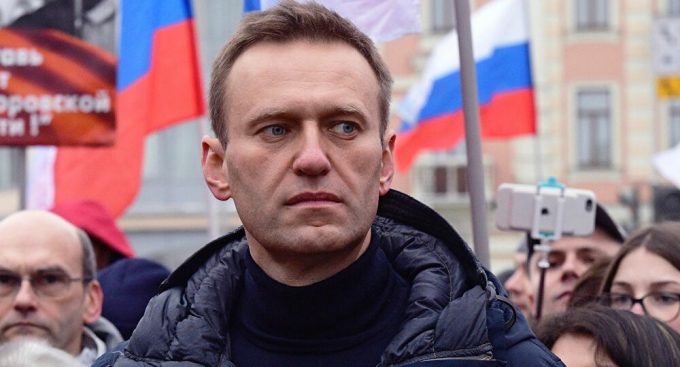RUSSIA: Russian lawyer and opposition leader Alexei Navalny dies in prison
19 February 2024
On Friday 16 February, the Russian authorities announced that Alexei Navalny, the leading political opponent of the President of the Russian Federation, Vladimir Putin, had died in prison. The lawyer and political activist had been sentenced several times, most recently in August 2023 to a 19-year prison term for “extremism”.
Alexei Navalny’s activism began in 2011, when he challenged the authority of the current government. The founder of the Anti-Corruption Foundation (FBK), was convicted for the first time by the Russian authorities in 2013. Since then, the persecution against him has not ceased.
In December 2016, Alexei Navalny announced that he would run for president of Russia in the 2018 elections. The authorities arrested Vladimir Putin’s opponent in March 2017. He was given a 5-year suspended prison sentence and declared ineligible to run in the elections.
The harassment of Navalny continued until his assassination attempt in 2020. The regime opponent was allegedly poisoned. He was treated in Germany, but arrested again on his return to Russia, where he is said to have been tortured several times in prison.[1]
After being sentenced to 19 years in prison in 2023, the Sakharov Prize recipient was transferred to a “special regime” prison in the Russian Arctic.
Navalny’s death occurred while in the custody of the Russian authorities, who had a duty of care over his life. Although the cause of death has not been officially established, the 47-year old Navalny was reported to be in good health the previous day during a video conference from his prison in Kharp with the Kovrov court judge. His mother, Lyudmila Navalnaya, said that she had seen her son on 12 February in his prison colony and that he was “in good health and joyful” at the time.
Three days after his death, the family and friends of Alexeï Navalny are being denied access to his body. The commission of investigation is said to have informed the mother and lawyers that the investigation into Navalny’s death had been extended, without specifying how long.[2]
The Russian regime has also targeted his lawyers on several occasions, precisely for defending him. In October 2023, Vadim Kobzev, Igor Sergunin and Alexei Liptser were arrested and detained after their homes were searched. Lawyers Ivan Pavlov, Mikhail Benyash and Mansur Gilmanov were also harassed in 2021 after being assaulted, detained and arbitrarily sentenced.
On 15 February 2024, Moscow’s Basmanny district court issued arrest warrants for self-exiled lawyers Olga Mikhailova and Aleksandr Fedulov, charged with extremism for their association with Navalny and his Anti-Corruption Foundation (FBK).
The Observatory expresses its solidarity with the family and friends of Alexei Navalny.
The Observatory reiterates its firm condemnation of the persecution by the Russian authorities of lawyers and defenders of human rights and democracy in Russia.
The Observatory urges the Russian authorities to conduct a prompt, effective, independent, impartial and transparent investigation into the circumstances of Alexei Navalny’s death in accordance with the Minnesota Protocol on the Investigation of Deaths Caused by Potentially Unlawful Acts (UN), which states that the authorities must ensure an independent autopsy by impartial forensic experts and be transparent.
The Observatory points out that “All persons shall be equal before the courts and tribunals. In the determination of any criminal charge against him, or of his rights and obligations in a suit at law (…)“, in compliance with article 14, paragraph 1, of the International Covenant on Civil and Political Rights.
The Observatory urges the Russian authorities to comply with article 19, paragraphs 1 and 2, of the International Covenant on Civil and Political Rights, ratified by the Russian Federation, which states that: “1. Everyone shall have the right to hold opinions without interference; 2. Everyone shall have the right to freedom of expression; this right shall include freedom to seek, receive and impart information and ideas of all kinds, regardless of frontiers, either orally, in writing or in print, in the form of art, or through any other media of his choice.”
Finally, the Observatory recalls that under the terms of the International Covenant on Civil and Political Rights, in particular Article 25, “Every citizen shall have the right and the opportunity, without any of the distinctions mentioned in article 2 and without unreasonable restrictions: (a) To take part in the conduct of public affairs, directly or through freely chosen representatives; (b) To vote and to be elected at genuine periodic elections which shall be by universal and equal suffrage and shall be held by secret ballot, guaranteeing the free expression of the will of the electors; (c) To have access, on general terms of equality, to public service in his country.”
The Observatory highlights that, in accordance with the United Nations basic principles on the role of the Bar, in particular principle 23:
Principle 23: “Lawyers like other citizens are entitled to freedom of expression, belief, association and assembly. In particular, they shall have the right to take part in public discussion of matters concerning the law, the administration of justice and the promotion and protection of human rights and to join or form local, national or international organizations and attend their meetings, without suffering professional restrictions by reason of their lawful action or their membership in a lawful organization. (…)”
[1] Ouest France, “Russie. « Ne dors pas, regarde ! » : torture mentale, propagande… Alexeï Navalny raconte sa détention”, 27 August 2021, online.
Amnesty international UK, “Russian federation: Aleksei Navalny’s ill-treatment stepped up”, online.
[2] Le Monde, “Alexeï Navalny : ce que l’on sait trois jours après la mort en prison de l’opposant russe”, 16 February 2024, online.

